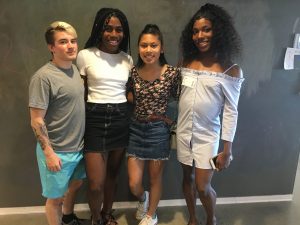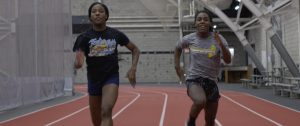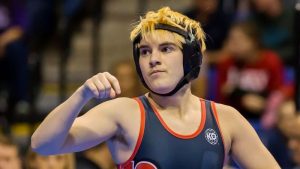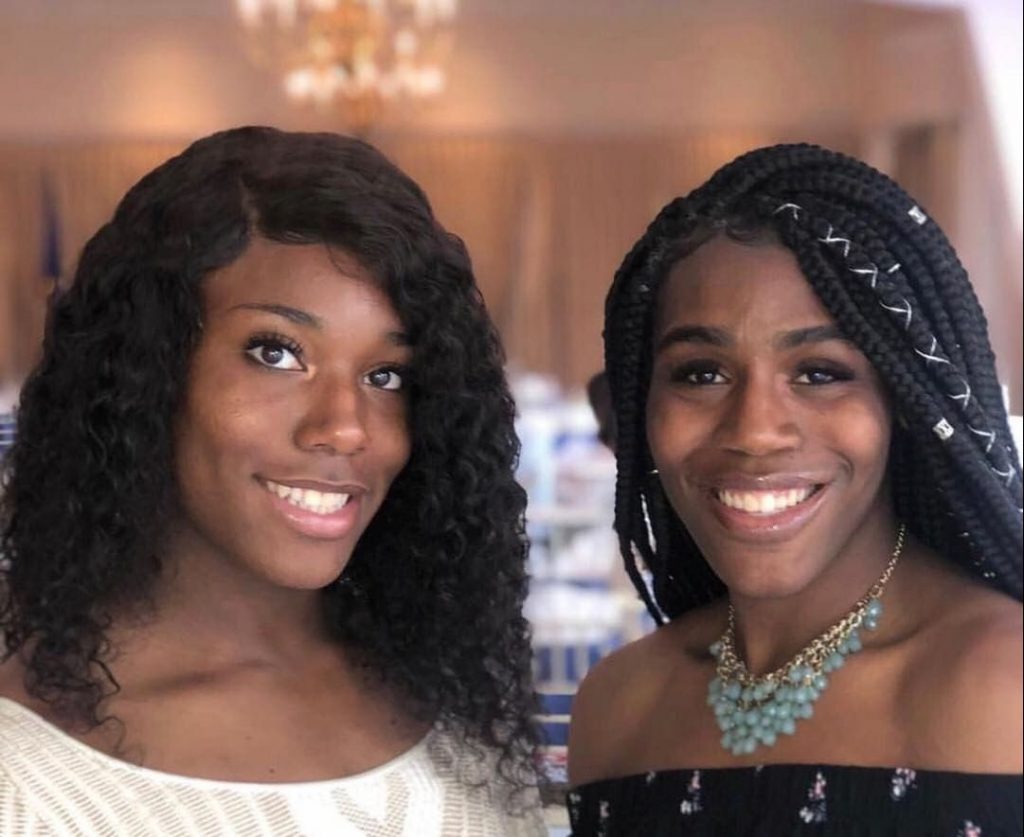Trans women athletes often bear the brunt of hatred and vitriol
Written by Dawn Ennis
Three teenage girls from Connecticut are the unlikely combatants embroiled in a ferocious debate that has divided athletes, fans, feminists, clerics, pundits, and parents around the world: the issue of transgender inclusion in sports. At the core of this controversy looms one overarching question: What is fair? That word means different things to different people, depending on which side of the debate you’re on.
On one side, there is a female student athlete who argues she should not have to compete against transgender girls. On the other side are two girls who are trans, and the private, nonprofit organization that serves as the lone governing body for all of the interscholastic athletic activities throughout the state: the Connecticut Interscholastic Athletic Conference (CIAC). CIAC rules state that trans student athletes can compete according to their gender identity. A similar policy is in effect for high schoolers across New England, in New York, and in several other states.
The CIAC policy follows Connecticut’s anti-discrimination law. But in an ironic twist, the opponents of trans inclusion say the anti-discrimination policy is discriminating against girls who are cisgender, meaning that they identify with the gender they were assigned at birth. To best understand the genesis of this standoff, let’s go back to May 2017, when these three young women competed in the Middletown Varsity Invitational. The results of that meet sparked the firestorm that has made headlines around the world.
“We have no chance at winning”
Selina Soule of Glastonbury, 16, placed sixth in the Middletown event, behind two trans girls and three other female athletes. Soule is cisgender.
“It’s just really frustrating and heartbreaking, because we all train extremely hard to shave just fractions of a second off of our time. And these athletes can do half the amount of work that we do, and it doesn’t matter,” Soule told the Wall Street Journal. “We have no chance of winning.”
Terry Miller, 17, of Bloomfield finished first, followed by Andraya Yearwood of Cromwell, now 18. Both are transgender sprinters. That result inspired a crusade by Soule and her mother, Bianca Stanescu, to stop the CIAC from allowing trans girls to compete with cis girls. “It is unfair because it’s only calling for girls to have the right of participation, but not the right to succeed,” Stanescu said in a telephone interview with Connecticut VOICE. “And that should not be the case. Girls should have the chance to succeed, not just boys.”
Stanescu, like many opponents of transgender inclusion, frequently refer to Yearwood, Miller and other female trans athletes as “boys” and “biological males.” Stanescu launched an online campaign in June 2018. Her petition failed to get any traction until earlier this year, when her daughter started appearing on Fox News. Soule posted a video to YouTube about her experience that she says she made “so this won’t happen to other girl athletes in the United States.” Lesbian tennis pioneer Martina Navratilova waded into the debate and shared a link to Soule’s video with her 283,000 followers. Unfortunately for Stanescu, her petition remains far short of reaching its goal. “People are afraid to sign it,” Stanescu says. As of press time, it had garnered only 204 signatures.

A coach’s perspective
Connecticut VOICE asked a track coach to review Stanescu’s claims. Zach Emerson, head coach of Franklin Pierce University in New Hampshire, coached the very first NCAA transgender champion in track and field, CeCé Telfer, to victory in the 400-meter this past May. As a father of girls, Emerson says he feels for Stanescu, who is upset that her daughter placed sixth in the Middletown meet instead of fourth; she says it’s because Miller and Yearwood finished 1st and 2nd. “I would never say that what she feels is wrong,” says Coach Emerson. “But I think if you asked any college coach about that argument, they would laugh at that.” All that really matters, he explains, is whether runners improve their time. “We don’t look at finishes, we don’t look at who’s a state champ, we look at what their time was,” he says.
What do scientists say? Yale University bioethicist Katrina Karkazis told VICE News in May she’s seen no “evidence that going through a male-typical puberty will necessarily give trans women or transfeminine individuals an advantage” over cisgender women. But in July, New Zealand researchers published a paper that concluded that trans women and cisgender men are “unfairly advantaged” over cisgender women and trans men, based on testosterone levels and other factors. Who’s right? Both sides in the debate over transgender inclusion can only agree on one thing: more research is needed.

Help from a “hate group”
On June 18, the Alliance Defending Freedom (ADF), a Christian legal advocacy nonprofit organization, joined the fray.
Labeled an extremist hate group by the Southern Poverty Law Center, the ADF filed a complaint on behalf of Soule and two unnamed Connecticut student athletes, with the federal Department of Education’s Office for Civil Rights. Their attorneys called the CIAC policy “illegal discrimination,” and claim it violates Title IX of the Education Amendments Act of 1972.
The ADF misgendered Miller and Yearwood throughout its announcement on Fox News, and in the complaint, as “two biological males.” “Between them, they have taken 15 women’s state championship titles (titles held in 2016 by 10 different Connecticut girls) and have taken more than 40 opportunities to participate in higher level competitions from female track athletes in the 2017, 2018, and 2019 seasons alone.” In August, the U.S. Department of Education approved the investigation. “I’m grateful that the Office of Civil Rights has agreed to investigate our complaint,” Bianca Stanescu told Connecticut Voice, “because girls deserve to compete on an equal and fair playing field and shouldn’t become spectators in their own sport.”
In their response, Miller and Yearwood noted that discrimination is something they know all about.“I have faced discrimination in every aspect of my life and I no longer want to remain silent,” said Miller. “I am a girl. … There is a long history of excluding black girls from sports and policing our bodies. I am a runner and I will keep running and keep fighting for my existence, my community and my rights.” Yearwood said in a statement, “I have known two things for most of my life: I am a girl and I love to run. There is no shortage of discrimination that I face as a young black woman who is transgender. I have to wake up every day in a world where people who look like me face so many scary and unfair things. I am lucky to live in a state that protects my rights and to have a family that supports me. This is what keeps me going. … I will never stop being me! I will never stop running!”
Soule has the ADF; and Yearwood and Miller have the New Haven Pride Center and 15 other state organizations, including the ACLU, all of which signed a statement of solidarity in support of the trans student athletes. Stanescu says she, too, supports the rights of transgender students to identify as they see fit.
“Someone’s freedom of expression or someone questioning their gender, in a normal, everyday school environment, it’s perfectly acceptable,” she says. “Nobody should have an issue with that. However, athletics should be treated differently.” But Miller says: “I don’t understand how you can say, ‘I can be who I want to be, however I can’t [run] track with the females.’ That means you don’t accept me for who I really am.”

Miller transferred to Bloomfield High School from Bulkeley High in Hartford, and since then she has seen her times improve – and the hatred she faces increase.
“When we first went viral, it was new for me,” says Miller. “I was sad. I read through the comments [online] and wow, it shows how cruel people can be.”
Eventually, she says, she got over it. “I took it and I stored it, so every time I ran, I just left it all on the track, and it built my character. Now I can say I’ve been through that, so I can go do anything.”
Miller says she’s always known she is a girl. “Since I could talk,” she says. Although she didn’t begin her transition until sophomore year, she came out to her mother when she was in eighth grade. Running is her favorite thing to do, other than shopping, Miller says. She is so fast in her sport, Hartford Courant sportswriter Shawn McFarland tweeted in April, “What didn’t Terry Miller win?”
In an article, McFarland calls her “one of the most accomplished indoor track athletes in the state,” and the All-Courant girls’ indoor track and field athlete of the year. McFarland also noted that Miller at one point “held the No. 2 time in the country for the 55-meter dash.” While critics say statistics prove that trans athletes are dominating or “destroying” girls’ sports, the fact is, she wasn’t faster than the cisgender girl ranked No. 1. And Miller’s best time in that event, 6.91, currently ranks her fourth in the country, behind three cis female athletes. “I can be beaten,” Miller says. “A few times, I have been beaten. I feel like we all have things that we need to work on, and I try to focus on the things I need to work on.”
“We feed off each other”
Fortunately for Miller, she is not alone in her battle to be recognized, respected, and accepted. In many of the state competitions she has run, Yearwood from Cromwell High has finished a close second, challenging Miller to run faster. “We feed off each other,” Miller says, adding that they’ve become fast friends instead of just fast competitors. “We have a lot in common.” Miller and Yearwood both took part in a roundtable discussion at GLSEN’s headquarters in Manhattan in April. GLSEN stands for the Gay, Lesbian & Straight Education Network, which bills itself as “the leading national education organization working to create safe schools for ALL students.” The roundtable followed the Tribeca Film Festival world premiere of Michael Barnett‘s documentary film, “Changing the Game,” about three teen trans athletes: Yearwood, skier Sarah Rose Huckman of New Hampshire, and wrestler Mack Beggs of Texas.

“I feel like there’s a different advantage that each person has,” said Yearwood.
“And we lose sometimes, too,” Miller interjected.
“Yeah, exactly!” exclaimed Yearwood. “We don’t come first in every race but some people make it seem like we do.”
“A lot of the people that we compete with come over to me and say, ‘You’re so brave,’ and it’s just shocking, because I would expect our generation to go crazy,” said Miller. “But it’s not them.” The older generations, she said, are their most vocal and prolific antagonists.
“Well,” added Yearwood, with a wry smile. “They’ll be gone soon.”
Women of color
At the roundtable, Huckman, Miller and Yearwood each spoke about being women of color, and the additional perils Miller and Yearwood face given the national epidemic of violence against black trans women. “It does worry me,” says Ngozi Nnaji of Middletown, Andraya Yearwood’s mother. She spoke with Connecticut VOICE about the obstacles her daughter faces as a trans woman of color. “What I try to tell her is that it’s about awareness, the reality of her life, and how society might respond to her. [I also explain] how it gets compounded because she’s transgender, and she’s an athlete who’s out, and she’s black,” says Nnaji. “The one thing that she can do and she has been doing, to help people understand,” she says, “is just to be herself.”
Earlier this year, Yearwood invited Connecticut VOICE to meet her father, Rahsaan, his wife, Shannon, and her six siblings at her dad’s Cromwell home.
Yearwood says as far back as first grade, she recalls wearing princess dresses and bringing a princess backpack to school. In fifth grade, she accessorized with pink and purple boots. Reactions made her realize, “What I had been doing wasn’t the norm.” But Yearwood could not be swayed from becoming who she is. “I didn’t let being different hinder me from getting what I wanted.”
With the full support of family and friends, Yearwood started her transition in middle school. In 2017, she started running track on the high school girls’ team and joined the cheerleading squad. She turned 18 in August and told the Courant she’s been undergoing hormone treatment for some time. Without getting into details about her private medical history, Yearwood told Connecticut VOICE she’s looking forward to the next step in her transition. “I’m more happy with myself because of who I am, who I have become,” she says. “I am excited for the future, knowing that future changes will happen.” Her father adds that he took Stanescu out for coffee to talk about her petition. “I tried explaining to her as someone who was an athlete in college,” Rahsaan says, that “colleges look at the body of work. There’s never any one race or one game. But in her mind, you know, she thinks, ‘You’re taking opportunity away from my daughter because you’re here.’” “Runners who can’t afford to attend regionals and nationals are also being excluded,” says Rahsaan, “and yet they find ways to make sure college coaches know who they are.”

Transgender Pride
In June, Yearwood took a break from homework, track and traveling the nation promoting the documentary, to march in her first-ever Pride parade in West Hollywood, Calif. She also spoke at an international LGBTQ athlete conference at UCLA called Outsports Pride. While other trans athletes say they’d prefer to be labeled as just athletes instead of “trans athletes,” Yearwood says she sees a huge upside to her living authentically as an out trans girl. “Being transgender has afforded me so many opportunities,” Yearwood says. “Being able to advocate, and to support and help other people. I do take pride in my being transgender.”







More Stories
The Truth About Trans Athletes
Helping the Sun Shine: Stephanie White Joins the Team as Coach
Eyes on the Prize